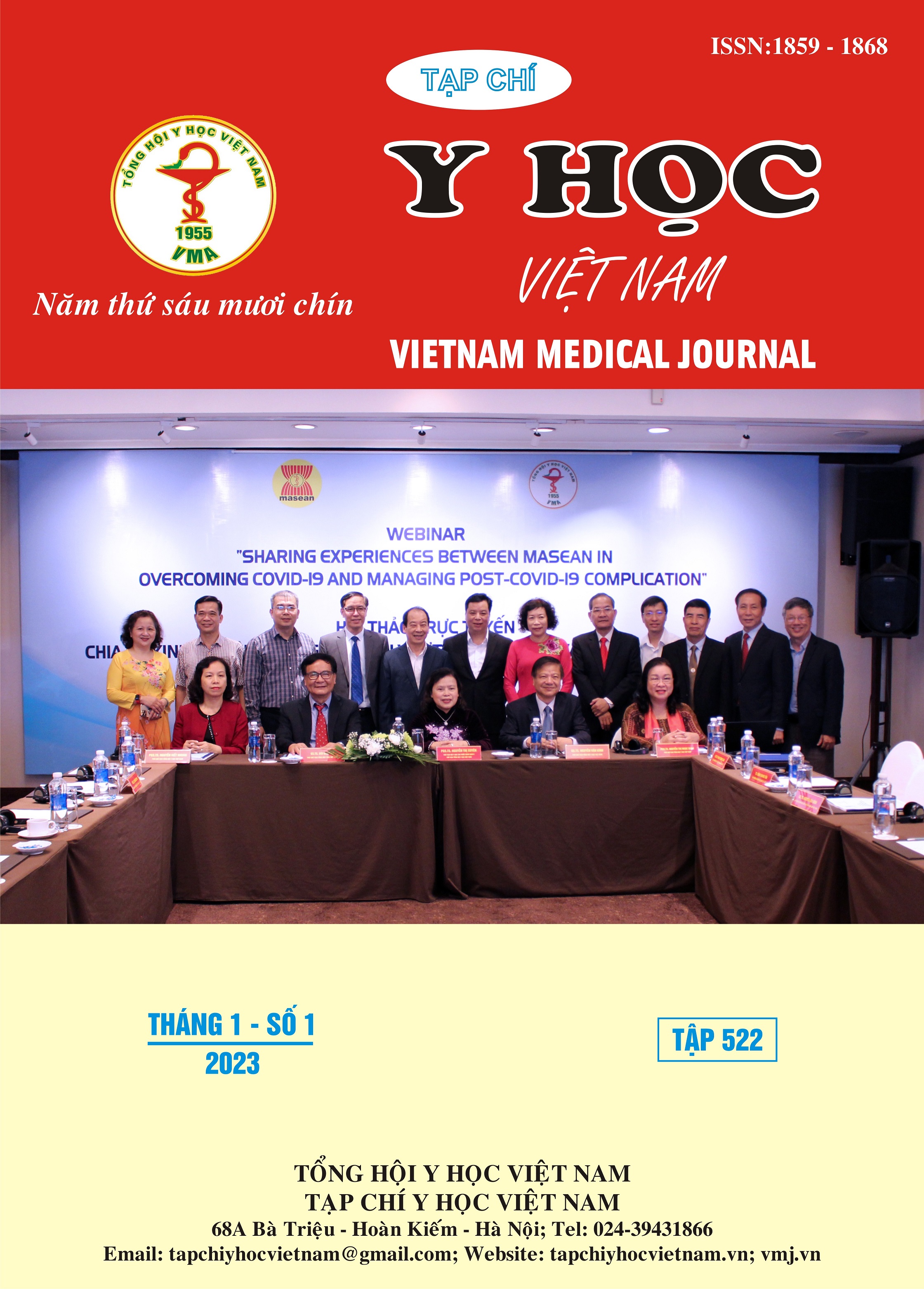EFFECTS OF FORMULA SUPPLEMENT ON NUTRITION STATUS AND HEALTH OF KINDERGARTEN CHILDREN
Main Article Content
Abstract
A controlled intervention study evaluated the effect of formula supplementation on nutritional status and health of kindergarten children aged 36-59 months. The study was completed in Thai Binh in October 2022 with 110 children including 55 children of the intervention group supplementing with formula milk twice a day for 2 months, and 55 children of the control group with a regular diet. The study results showed that supplementing with formula had positive effects in nutrition status and health. The evaluated indicators of the intervention group were better than those of the control group: the average weight gain was 0.41 kg more (0.68 ± 0.11 kg versus 0.27 ± 0.08 kg) with statistical significance (p<0.05); the average height increase was 0.35 cm more (1.45 ± 0.11 cm versus 1.1 ± 0.16 cm) with statistical significance (p<0.05); There was not overweight or obesity. There was a tendency to reduce the rate of respiratory infections, diarrhea, constipation, anorexia, and sleep problems but not statistically significant. The rate of drinking milk was 97.9%, of which the rate of drinking enough milk was 91.8% with 2 meals per day.
Article Details
Keywords
micronutrients, formula milk, height, weight, kindergarten children
References
2. Chính phủ (2016). Chương trình sữa học đường cải thiện tình trạng dinh dưỡng góp phần nâng cao tầm vóc trẻ em mẫu giáo và tiểu học đến năm 2020.
3. Best C., Neufingerl N., Del Rosso J.M., et al. (2011). Can multi-micronutrient food fortification improve the micronutrient status, growth, health, and cognition of schoolchildren? a systematic review. Nutr Rev, 69(4), 186–204.
4. World Health Organization (2013). Essential Nutrition Actions: improving maternal, newborn, infant and young child health and nutrition. .
5. World Health Organization (2006). The WHO child growth standards. Bull World Heal Organ, 52(1), 13–17.
6. Flodin N.W. (1997). The metabolic roles, pharmacology, and toxicology of lysine. J Am Coll Nutr, 16(1), 7–21.
7. Gombart A.F., Pierre A., and Maggini S. (2020). A Review of Micronutrients and the Immune System–Working in Harmony to Reduce the Risk of Infection. Nutrients, 12(1), 123-133.


